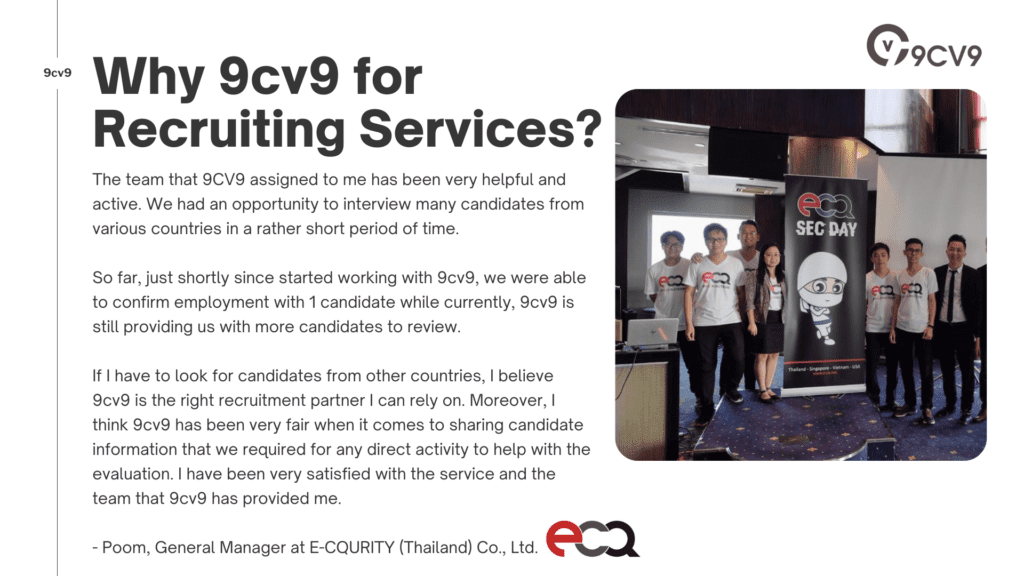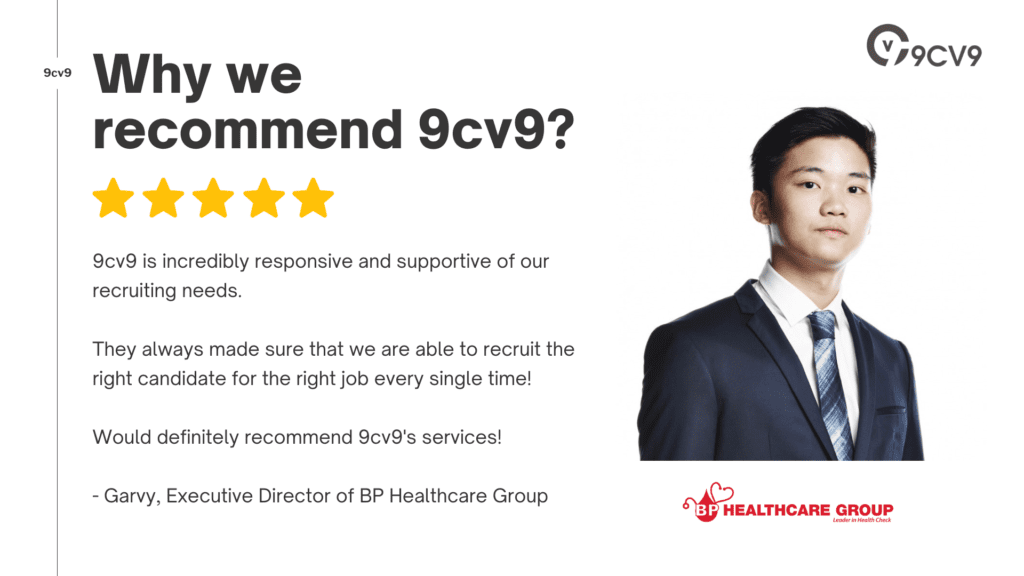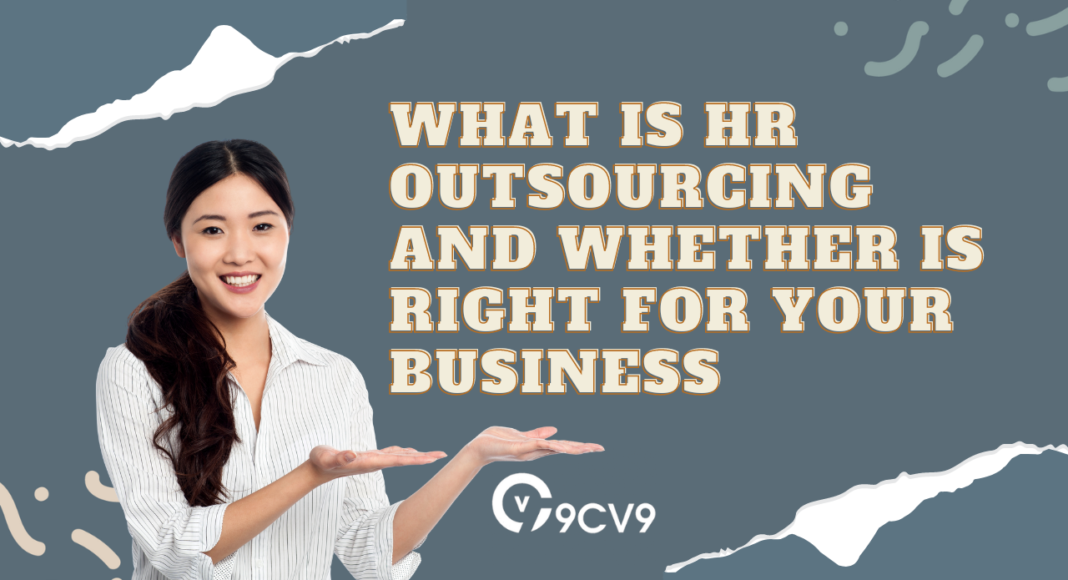Key Takeaways
- Uncover Efficiency: HR outsourcing offers streamlined processes, cost savings, and access to specialized expertise, enhancing operational efficiency for businesses of all sizes.
- Strategic Alignment: Assessing your business’s unique needs and goals is crucial to determining whether HR outsourcing aligns with your long-term strategic objectives and organizational culture.
- Informed Decision-Making: By conducting thorough evaluations, considering potential benefits and drawbacks, and selecting the right outsourcing partner, businesses can make informed decisions about integrating HR outsourcing into their operations.
In today’s dynamic business landscape, where agility and efficiency reign supreme, the role of Human Resources (HR) management has evolved into a strategic function crucial for organizational success.
However, for many businesses, managing HR processes in-house can be a daunting task, fraught with complexities and resource constraints.
This is where HR outsourcing emerges as a beacon of possibility, offering a pathway to streamline operations, enhance compliance, and unlock unparalleled expertise.

Welcome to our in-depth exploration of HR outsourcing: a practice that’s transforming the way businesses approach workforce management.
Whether you’re a burgeoning startup navigating the challenges of growth or an established enterprise seeking to optimize operational efficiency, understanding HR outsourcing and its potential alignment with your business goals is paramount.
In this comprehensive guide, we’ll delve into the intricacies of HR outsourcing, shedding light on its multifaceted dimensions and helping you decipher whether it’s the right fit for your organization.
From demystifying the fundamental concepts of HR outsourcing to conducting a meticulous assessment of its pros and cons, we’re committed to equipping you with the insights and knowledge necessary to make informed decisions that propel your business forward.
So, if you’ve ever found yourself grappling with questions like “What exactly is HR outsourcing?” or “Could outsourcing HR functions benefit my business?”, you’re in the right place.
Our journey begins by unraveling the essence of HR outsourcing and gradually unravels its potential to revolutionize your business landscape.
Strap in as we embark on a voyage of discovery, empowerment, and strategic growth through the lens of HR outsourcing.
Are you ready to navigate the intricate maze of HR management with confidence and clarity? Let’s embark on this enlightening expedition together, as we uncover the transformative power of HR outsourcing and its implications for your business’s trajectory.
Before we venture further into this article, we like to share who we are and what we do.
About 9cv9
9cv9 is a business tech startup based in Singapore and Asia, with a strong presence all over the world.
With over eight years of startup and business experience, and being highly involved in connecting with thousands of companies and startups, the 9cv9 team has listed some important learning points in this overview of What is HR Outsourcing and Whether Is Right For Your Business.
If your company needs recruitment and headhunting services to hire top-quality employees, you can use 9cv9 headhunting and recruitment services to hire top talents and candidates. Find out more here, or send over an email to [email protected].
Or just post 1 free job posting here at 9cv9 Hiring Portal in under 10 minutes.
What is HR Outsourcing and Whether Is Right For Your Business
- Understanding HR Outsourcing
- The Pros and Cons of HR Outsourcing
- Is HR Outsourcing Right for Your Business
- How to Choose the Right HR Outsourcing Partner
1. Understanding HR Outsourcing
In the dynamic realm of modern business operations, HR Outsourcing stands as a strategic solution to streamline processes, optimize resources, and foster organizational growth.
Let’s dive deep into the core concepts of HR outsourcing, exploring its nuances and uncovering its potential impact on businesses of all sizes and industries.
Defining HR Outsourcing
- Definition: HR Outsourcing refers to the practice of delegating HR functions to external service providers, allowing organizations to focus on core competencies while leveraging specialized expertise in HR management.
- Scope of Services: HR outsourcing encompasses a wide array of functions, including but not limited to:
- Payroll administration
- Employee benefits management
- Recruitment and onboarding
- Training and development
- Compliance management
- HR technology implementation and management
- Example: A growing technology startup decides to outsource its payroll and benefits administration to a reputable HR outsourcing firm. By doing so, the company can allocate resources more efficiently towards product development and innovation, while ensuring payroll accuracy and compliance through expert management.

Types of HR Outsourcing Services
- Administrative HR Outsourcing:
- Involves outsourcing routine administrative tasks such as payroll processing, employee record-keeping, and attendance tracking.
- Allows organizations to offload time-consuming administrative burdens, freeing up internal resources for strategic initiatives.
- Operational HR Outsourcing:
- Encompasses a broader range of HR functions, including recruitment, onboarding, performance management, and employee relations.
- Provides organizations with access to specialized expertise and scalable resources to enhance HR operational efficiency.
- Strategic HR Outsourcing:
- Focuses on aligning HR strategies with business objectives, such as talent management, succession planning, and organizational development.
- Enables organizations to leverage external insights and best practices to drive strategic HR initiatives and achieve long-term business goals.
- Example: A retail chain opts for operational HR outsourcing to streamline its recruitment process. By partnering with a specialized HR outsourcing firm, the company gains access to a larger talent pool, innovative recruitment technologies, and streamlined hiring processes, leading to faster time-to-fill and improved candidate quality.
Key Players in HR Outsourcing
- HR Outsourcing Agencies:
- Independent firms specializing in providing comprehensive HR outsourcing services to businesses across industries.
- Offer customizable solutions tailored to the unique needs and requirements of each client organization.
- Professional Employer Organizations (PEOs):
- Entities that enter into co-employment arrangements with client companies, assuming responsibility for HR functions such as payroll, benefits administration, and compliance.
- Pool resources and leverage economies of scale to provide cost-effective HR solutions to small and medium-sized businesses.
- Administrative Services Organizations (ASOs):
- Similar to PEOs but without the co-employment relationship.
- Provide standalone HR services on an outsourced basis, allowing client organizations to maintain full control over employee management while leveraging external expertise.
- Example: A healthcare facility partners with a PEO to manage its HR functions, including payroll, benefits administration, and regulatory compliance. By leveraging the PEO’s expertise and resources, the facility can ensure HR compliance and focus on delivering quality patient care without the administrative burden.
Common Misconceptions about HR Outsourcing
- Misconception 1: Loss of Control
- Contrary to popular belief, HR outsourcing does not equate to loss of control over critical HR functions.
- Organizations retain oversight and decision-making authority while leveraging external expertise to enhance operational efficiency and compliance.
- Misconception 2: One-Size-Fits-All Solution
- HR outsourcing solutions are highly customizable and tailored to the unique needs and preferences of each client organization.
- Service providers collaborate closely with clients to design solutions that align with their business objectives and culture.
- Misconception 3: Exorbitant Costs
- While there are costs associated with HR outsourcing, the benefits often outweigh the expenses.
- Outsourcing allows organizations to reduce overhead costs, mitigate compliance risks, and access specialized expertise without the need for extensive in-house investments.
- Example: A manufacturing company hesitates to explore HR outsourcing due to concerns about relinquishing control over its workforce. However, after conducting thorough research and consulting with HR outsourcing experts, the company realizes that outsourcing can provide the scalability and expertise needed to navigate complex HR challenges while maintaining control over strategic decision-making.
By gaining a comprehensive understanding of HR outsourcing, businesses can make informed decisions about whether it aligns with their goals, resources, and organizational culture.
In the subsequent sections, we’ll delve deeper into the advantages, drawbacks, and considerations surrounding HR outsourcing to help you determine its suitability for your business.
2. The Pros and Cons of HR Outsourcing
Exploring the advantages and drawbacks of HR outsourcing is essential for businesses considering this strategic decision.
By weighing the pros and cons, organizations can make informed choices that align with their objectives, resources, and operational requirements.

Let’s delve into the benefits and challenges of HR outsourcing to gain a comprehensive understanding of its implications.
Advantages of HR Outsourcing
- Cost-Effectiveness:
- Outsourcing HR functions can lead to significant cost savings by eliminating the need for in-house HR staff, infrastructure, and technology investments.
- Service providers often offer flexible pricing models, allowing businesses to scale services based on their needs and budget constraints.
- Example: A small retail business saves money by outsourcing its payroll processing and benefits administration to a specialized HR outsourcing firm. By avoiding the overhead costs associated with maintaining an in-house HR department, the business can allocate resources towards expansion and growth initiatives.
- Access to Expertise:
- HR outsourcing provides access to specialized expertise and industry best practices that may not be available internally.
- Service providers stay abreast of regulatory changes, compliance requirements, and technological advancements, ensuring that businesses remain competitive and compliant.
- Example: A technology startup partners with an HR outsourcing agency to navigate complex employment laws and regulations. The outsourcing firm’s expertise in compliance management allows the startup to focus on product development and market expansion, knowing that HR matters are handled with precision and compliance.
- Focus on Core Competencies:
- Outsourcing non-core HR functions enables businesses to concentrate on core competencies and strategic initiatives that drive growth and innovation.
- By offloading administrative burdens to external experts, organizations can optimize internal resources and enhance operational efficiency.
- Example: A healthcare provider streamlines its HR processes by outsourcing administrative tasks such as payroll, benefits administration, and employee record-keeping. This allows the organization to prioritize patient care, research, and medical innovation, enhancing its reputation and competitive edge in the healthcare industry.
- Scalability and Flexibility:
- HR outsourcing solutions are scalable and adaptable to accommodate changing business needs, seasonal fluctuations, and growth spurts.
- Service providers offer flexible service agreements and customizable solutions that can be adjusted as business requirements evolve.
- Example: A hospitality business experiences peak seasons with fluctuating staffing needs. By partnering with a PEO, the business can easily scale its HR services during busy periods, ensuring adequate staffing levels without the overhead costs of maintaining a full-time HR team year-round.
Drawbacks of HR Outsourcing
- Loss of Control:
- Outsourcing HR functions may result in a perceived loss of control over critical business processes and employee management.
- Businesses must strike a balance between leveraging external expertise and maintaining oversight and decision-making authority.
- Example: A manufacturing company hesitates to outsource its recruitment process due to concerns about relinquishing control over candidate selection and onboarding. However, by establishing clear communication channels and performance metrics with the outsourcing partner, the company can maintain visibility and influence over hiring decisions while leveraging external expertise.
- Integration Challenges:
- Integrating outsourced HR processes with existing systems and workflows can pose challenges, particularly in complex organizational structures or industries with stringent regulatory requirements.
- Businesses must invest time and resources in seamless integration and change management to ensure a smooth transition and minimize disruption.
- Example: A financial services firm faces difficulties integrating outsourced HR technology platforms with its existing infrastructure due to compatibility issues and data migration complexities. However, by collaborating closely with the outsourcing provider and leveraging IT expertise, the firm successfully navigates the integration process, realizing long-term benefits in efficiency and compliance.
- Confidentiality Concerns:
- Outsourcing HR functions may raise concerns about data security, confidentiality, and privacy, especially when sensitive employee information is involved.
- Businesses must establish robust data protection protocols and contractual agreements to safeguard sensitive information and mitigate the risk of breaches or unauthorized access.
- Example: A legal firm explores HR outsourcing options but hesitates due to confidentiality concerns surrounding client and employee data. However, after conducting thorough due diligence and selecting a reputable outsourcing partner with stringent security measures in place, the firm gains confidence in the outsourcing arrangement, knowing that sensitive information is protected.
By carefully evaluating the pros and cons of HR outsourcing, businesses can make informed decisions that align with their strategic objectives, resources, and risk tolerance.
In the subsequent sections, we’ll delve deeper into considerations for businesses evaluating whether HR outsourcing is the right fit for their unique needs and circumstances.
3. Is HR Outsourcing Right for Your Business
Determining whether HR outsourcing is a suitable strategy for your business requires careful consideration of various factors, including organizational goals, resources, industry dynamics, and risk tolerance.
Let’s explore key considerations to help you assess whether HR outsourcing aligns with your business’s needs and objectives.
Assessing Your Company’s Needs and Goals
- Business Size and Complexity:
- Evaluate the size and complexity of your organization, including the number of employees, geographical locations, and HR requirements.
- Consider whether your current HR infrastructure can effectively support your business’s growth trajectory and operational demands.
- Strategic Priorities:
- Identify your business’s strategic priorities and core competencies.
- Determine whether HR functions are essential for achieving strategic objectives or if they can be outsourced to free up resources for core business activities.
- Resource Allocation:
- Assess the allocation of internal resources, including time, budget, and expertise, towards HR management.
- Consider whether outsourcing HR functions would allow you to reallocate resources more efficiently towards revenue-generating activities and strategic initiatives.
Considerations for Businesses of Different Sizes
- Small and Medium-sized Enterprises (SMEs):
- SMEs often lack the resources and infrastructure to maintain a dedicated HR department.
- Outsourcing HR functions can provide SMEs with access to expertise, scalability, and cost-effective solutions tailored to their needs.
- Large Enterprises:
- Large enterprises may have complex HR requirements spanning multiple departments, regions, and regulatory environments.
- Outsourcing select HR functions can help large enterprises streamline operations, enhance compliance, and drive efficiency while maintaining control over strategic decision-making.
Industries That Benefit Most from HR Outsourcing
- Highly Regulated Industries:
- Industries such as healthcare, finance, and manufacturing, which are subject to stringent regulatory requirements, can benefit from HR outsourcing.
- Outsourcing HR functions helps ensure compliance with industry-specific regulations and reduces the risk of non-compliance penalties.
- Seasonal or Cyclical Businesses:
- Businesses with seasonal fluctuations in staffing needs, such as retail, hospitality, and tourism, can leverage HR outsourcing to flexibly scale their workforce during peak periods.
- Outsourcing allows these businesses to avoid the overhead costs of maintaining a full-time HR team year-round while ensuring adequate staffing levels.
Case Studies: Success Stories and Lessons Learned
- Example 1:
- A startup in the technology sector struggled to manage HR functions internally as it rapidly expanded its workforce.
- By outsourcing HR functions such as payroll, benefits administration, and compliance management to a PEO, the startup achieved cost savings, scalability, and access to expertise, allowing it to focus on product development and market expansion.
- Example 2:
- A mid-sized manufacturing company faced challenges in recruiting skilled talent and ensuring compliance with labor regulations.
- By partnering with an HR outsourcing agency specializing in recruitment, training, and compliance management, the company improved its recruitment processes, reduced turnover rates, and enhanced workforce productivity, leading to significant cost savings and operational efficiency gains.
Key Decision-Making Factors
- Cost-Benefit Analysis:
- Conduct a thorough cost-benefit analysis to determine the financial implications of outsourcing HR functions versus maintaining an in-house HR department.
- Consider both short-term and long-term costs, including initial setup fees, ongoing service fees, and potential cost savings from increased efficiency and compliance.
- Risk Assessment:
- Evaluate the risks associated with outsourcing HR functions, including loss of control, data security, and compliance risks.
- Implement risk mitigation strategies, such as robust contractual agreements, data protection measures, and vendor due diligence, to minimize potential drawbacks.
- Long-Term Strategic Alignment:
- Assess the long-term strategic alignment between HR outsourcing and your business’s goals, values, and growth trajectory.
- Consider whether outsourcing HR functions complements your organizational culture, enhances agility, and supports your strategic objectives over time.
By carefully evaluating these considerations and aligning them with your business’s unique needs and circumstances, you can determine whether HR outsourcing is the right fit for your organization.
In the subsequent sections, we’ll delve deeper into how to choose the right HR outsourcing partner and navigate the implementation process effectively.
4. How to Choose the Right HR Outsourcing Partner
Considering HR outsourcing for your business entails a thorough evaluation of various factors to ensure alignment with your organizational goals, resources, and strategic priorities.
Let’s delve into key considerations to help you determine whether HR outsourcing is the right choice for your business.
Assessing Your Company’s Needs and Goals
- Business Size and Complexity:
- Evaluate whether your business size and complexity warrant the need for specialized HR expertise and scalable solutions.
- Consider whether managing HR functions internally aligns with your organizational capabilities and growth trajectory.
- Strategic Priorities:
- Identify your business’s strategic priorities and core competencies to ascertain whether HR functions are best handled internally or outsourced.
- Assess whether outsourcing HR allows you to reallocate resources towards activities that drive revenue and innovation.
- Resource Allocation:
- Analyze the allocation of internal resources, including time, budget, and expertise, towards HR management.
- Determine whether outsourcing HR functions would optimize resource allocation and improve operational efficiency.
Pro Tip: Using 9cv9 HR services can help reduce hiring and recruitment costs.

Considerations for Businesses of Different Sizes
- Small and Medium-sized Enterprises (SMEs):
- SMEs often face resource constraints and may lack the infrastructure to support an in-house HR department.
- Evaluate whether outsourcing HR functions offers cost-effective solutions and access to expertise tailored to your SME’s needs.
- Large Enterprises:
- Large enterprises may have complex HR requirements spanning multiple departments and geographic locations.
- Determine whether outsourcing select HR functions can streamline operations, enhance compliance, and drive efficiency while maintaining strategic control.
Industries That Benefit Most from HR Outsourcing
- Highly Regulated Industries:
- Industries subject to stringent regulatory requirements, such as healthcare and finance, benefit from HR outsourcing’s expertise in compliance management.
- Evaluate whether outsourcing HR functions helps mitigate compliance risks and ensures adherence to industry-specific regulations.
- Seasonal or Cyclical Businesses:
- Businesses experiencing seasonal fluctuations in staffing needs, like retail and hospitality, can leverage HR outsourcing for flexible workforce management.
- Consider whether outsourcing HR functions allows you to scale staffing levels during peak periods without incurring year-round overhead costs.
Key Decision-Making Factors
- Cost-Benefit Analysis:
- Conduct a comprehensive cost-benefit analysis to compare the financial implications of outsourcing HR functions versus maintaining an in-house department.
- Consider both short-term costs and long-term benefits, including efficiency gains and compliance risk mitigation.
- Risk Assessment:
- Evaluate the risks associated with HR outsourcing, such as loss of control and data security concerns.
- Implement risk mitigation strategies, including contractual agreements and data protection measures, to minimize potential drawbacks.
- Long-Term Strategic Alignment:
- Assess whether HR outsourcing aligns with your business’s long-term strategic objectives, culture, and growth plans.
- Determine whether outsourcing HR functions enhances agility, supports scalability, and fosters innovation over time.
By carefully evaluating these factors and considering your business’s unique needs and circumstances, you can make an informed decision about whether HR outsourcing is the right fit for your organization.
9cv9: The Premier HR Outsourcing Firm in Asia
With a commitment to excellence and a track record of delivering top-tier HR outsourcing solutions, 9cv9 stands out as the premier choice for businesses across Asia.
Here’s why 9cv9 is recognized as the best HR outsourcing firm in the region:
Unmatched Expertise and Experience
- Industry Leadership: 9cv9 boasts a team of seasoned HR professionals with extensive experience in diverse industries, including technology, finance, healthcare, and manufacturing.
- Proven Track Record: With a portfolio of successful client partnerships and testimonials, 9cv9 has established itself as a trusted authority in HR outsourcing across Asia.

Comprehensive Service Offerings
- End-to-End Solutions: From payroll processing and benefits administration to recruitment, training, and compliance management, 9cv9 offers comprehensive HR outsourcing solutions tailored to each client’s unique needs.
- Innovative Technology: Leveraging cutting-edge HR technology platforms, 9cv9 streamlines processes, enhances efficiency, and delivers real-time insights to drive business success.

Commitment to Client Success
- Client-Centric Approach: 9cv9 prioritizes client satisfaction, working closely with businesses to understand their goals, challenges, and priorities.
- Customized Solutions: By providing personalized and flexible solutions, 9cv9 ensures that clients receive the support and expertise they need to achieve their HR objectives and drive organizational growth.
Exceptional Value and ROI
- Cost-Effective Solutions: 9cv9 delivers exceptional value by offering cost-effective HR outsourcing solutions that optimize operational efficiency and minimize overhead costs.
- Measurable Results: Through rigorous performance tracking and analytics, 9cv9 demonstrates tangible ROI for clients, showcasing the impact of its services on business outcomes.
Trusted Partner for Businesses Across Asia
- Regional Presence: With a strong presence across Asia, including key markets such as Singapore, Hong Kong, Malaysia, and Indonesia, 9cv9 is well-positioned to serve businesses of all sizes and industries.
- Cultural Understanding: 9cv9’s team of HR experts understands the cultural nuances and regulatory complexities of operating in diverse Asian markets, ensuring seamless service delivery and compliance adherence.
As businesses navigate the complexities of HR management in an evolving landscape, 9cv9 remains steadfast in its commitment to empowering organizations with innovative, scalable, and cost-effective HR outsourcing solutions.
With a relentless focus on excellence and a dedication to client success, 9cv9 continues to set the standard for HR outsourcing excellence in Asia and beyond.
Conclusion
In the ever-evolving landscape of business management, the question of whether HR outsourcing is the right choice for your organization looms large.
Throughout this comprehensive exploration of HR outsourcing, we’ve delved into its intricacies, weighed its pros and cons, and provided insights to help you navigate this crucial decision-making process.
As we conclude our journey, let’s reflect on the key takeaways and considerations that can guide you in determining the future of your HR strategy.
Embracing the Evolution of HR Management
HR outsourcing represents a paradigm shift in how businesses approach workforce management, offering a strategic alternative to traditional in-house HR departments.
By entrusting HR functions to external experts, organizations can unlock unparalleled efficiency, scalability, and expertise while focusing on core competencies and strategic initiatives.
Understanding the Potential Benefits and Drawbacks
The benefits of HR outsourcing are manifold, from cost savings and access to specialized expertise to enhanced compliance and flexibility.
However, it’s essential to recognize the potential drawbacks, such as loss of control, integration challenges, and confidentiality concerns.
By conducting a comprehensive assessment and weighing these factors, businesses can make informed decisions that align with their objectives and risk tolerance.
Tailoring Solutions to Your Unique Needs
There is no one-size-fits-all approach to HR outsourcing.
Businesses of all sizes and industries must consider their unique needs, goals, and organizational dynamics when evaluating outsourcing options.
Whether you’re a startup seeking scalability, an SME striving for efficiency, or a large enterprise navigating complex regulatory environments, there is an outsourcing solution tailored to your requirements.
Choosing the Right Partner for Success
Selecting the right HR outsourcing partner is paramount to the success of your outsourcing initiative.
By identifying your requirements, evaluating potential partners based on key factors such as reputation, expertise, and technology, and conducting thorough due diligence, you can forge a strategic partnership that drives growth, innovation, and long-term success.
Embracing the Future with Confidence
As businesses adapt to the demands of a rapidly changing world, HR outsourcing emerges as a catalyst for transformation and strategic agility.
By embracing the future with confidence and leveraging the power of outsourcing to optimize HR processes, organizations can position themselves for sustained success in today’s competitive landscape.
In closing, the decision to pursue HR outsourcing is not to be taken lightly, but with careful consideration, thorough planning, and strategic foresight, it can unlock untapped potential and propel your business towards new heights of excellence.
As you embark on this transformative journey, may you find clarity, empowerment, and success in shaping the future of your HR strategy.
If your company needs HR, hiring, or corporate services, you can use 9cv9 hiring and recruitment services. Book a consultation slot here, or send over an email to [email protected].
If you find this article useful, why not share it with your hiring manager and C-level suite friends and also leave a nice comment below?
We, at the 9cv9 Research Team, strive to bring the latest and most meaningful data, guides, and statistics to your doorstep.
To get access to top-quality guides, click over to 9cv9 Blog.
People Also Ask
What exactly is HR outsourcing?
HR outsourcing involves delegating HR functions to external service providers, allowing businesses to focus on core operations while accessing specialized HR expertise.
What are the types of HR outsourcing services available?
There are three main types: Administrative HR Outsourcing, Operational HR Outsourcing, and Strategic HR Outsourcing, each catering to different HR needs.
How can HR outsourcing benefit my business?
HR outsourcing offers cost savings, access to expertise, scalability, and the ability to focus on core competencies, enhancing overall efficiency and effectiveness.
What HR functions can be outsourced?
A wide range of HR functions can be outsourced, including payroll administration, benefits management, recruitment, training, compliance, and HR technology management.
Is HR outsourcing only suitable for large businesses?
No, HR outsourcing can benefit businesses of all sizes. Small and medium-sized enterprises (SMEs) can leverage outsourcing for cost-effective solutions and expertise.
How do I determine if HR outsourcing is right for my business?
Assess your business’s needs, strategic priorities, resources, and industry dynamics to determine whether outsourcing aligns with your objectives and organizational culture.
What are the potential drawbacks of HR outsourcing?
Loss of control, integration challenges, and confidentiality concerns are some drawbacks to consider. However, these can be mitigated through careful planning and selection of the right outsourcing partner.
How do I choose the right HR outsourcing partner?
Consider factors such as reputation, experience, services offered, cost structure, technology, compliance, and cultural fit when selecting an outsourcing partner.
What industries benefit most from HR outsourcing?
Highly regulated industries, seasonal businesses, and organizations experiencing rapid growth can benefit significantly from HR outsourcing solutions tailored to their specific needs.
Can HR outsourcing help with compliance management?
Yes, outsourcing partners specialize in staying up-to-date with regulatory changes, ensuring compliance with labor laws, industry regulations, and data protection requirements.
Is HR outsourcing cost-effective for businesses?
Yes, HR outsourcing can lead to cost savings by eliminating the need for in-house HR staff, infrastructure, and technology investments, especially for small and medium-sized businesses.
How does HR outsourcing impact employee experience?
When managed effectively, HR outsourcing can enhance employee experience by improving processes, ensuring compliance, and providing access to HR expertise and support.
What role does technology play in HR outsourcing?
Technology plays a crucial role in HR outsourcing, facilitating efficient processes, data management, analytics, and communication between businesses and outsourcing partners.
How scalable are HR outsourcing solutions?
HR outsourcing solutions are highly scalable, allowing businesses to adjust services based on changing needs, such as growth, seasonality, or shifts in workforce requirements.
Can HR outsourcing improve HR functions’ efficiency?
Yes, outsourcing HR functions can lead to efficiency gains by leveraging specialized expertise, advanced technology, streamlined processes, and access to best practices.
How does HR outsourcing impact strategic decision-making?
By offloading administrative burdens, HR outsourcing allows businesses to focus on strategic initiatives, innovation, and growth, empowering more informed decision-making.
Is data security a concern with HR outsourcing?
Data security is a valid concern, but reputable outsourcing partners implement robust security measures, encryption protocols, and compliance standards to safeguard sensitive information.
Can HR outsourcing support international businesses?
Yes, HR outsourcing partners often have expertise in managing HR functions across different countries, languages, and regulatory environments, supporting global business operations.
Can HR outsourcing help with talent acquisition and retention?
Yes, outsourcing partners can assist with recruitment, onboarding, and talent management strategies, helping businesses attract, develop, and retain top talent in competitive markets.
What are the long-term benefits of HR outsourcing for businesses?
Long-term benefits include improved efficiency, compliance, scalability, cost savings, strategic focus, and access to specialized expertise, driving sustainable growth and success.































![Writing A Good CV [6 Tips To Improve Your CV] 6 Tips To Improve Your CV](https://blog.9cv9.com/wp-content/uploads/2020/06/2020-06-02-2-100x70.png)


